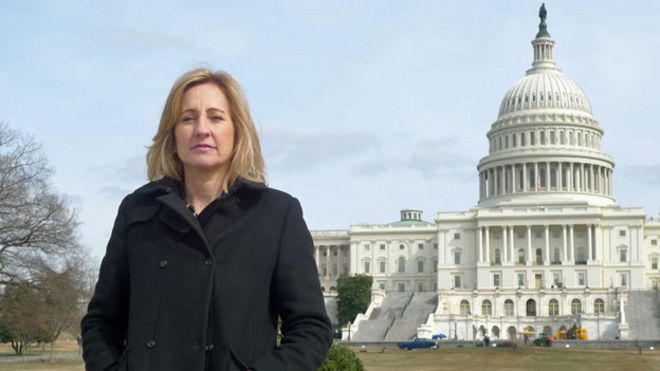- 8 March 2013
- Magazine
-
(여성) 여성들이 세상을 통치한다면 어떨까?아름다운 인생/여성 2016. 8. 1. 23:53
출처: http://www.bbc.com/news/world-21661744
Viewpoint: What if women ruled the world?

Not so long ago, the idea that women might rule the world seemed slightly ridiculous - like something out of science fiction. But in an essay to mark International Women's Day, political analyst and former White House press secretary Dee Dee Myers argues it's now a topic that can be seriously discussed.
Women clearly lacked the intellectual capacity and emotional fortitude to make the difficult decisions that leadership required. It wasn't bias, it was biology - it was just the way women were made.
But that was then. In recent decades, attitudes and ideas have changed - and fast. That's not to say that every corner of the world has welcomed women moving from the traditional and private into the modern and public. But move they have.
So what's changed? A lot. As a huge and growing body of research and experience makes clear, empowering women makes things better. Not perfect. But better.
Business is more profitable. Governments are more representative. Families are stronger, and communities are healthier. There is less violence - and more peace, stability and sustainability.
Why? Well, it starts with the simple fact that women often experience life differently. And that experience affects the way we see problems - and think about solutions.
"Diversity is absolutely an asset," says Christine Lagarde, the managing director of the International Monetary Fund.
"With diversity you bring different ways of looking at the world, different ways of analysing issues, different ways of offering solutions. The sheer fact of diversity actually increases the horizon and enriches the thinking process, which is critical."
Both women and men often say that women communicate differently, that they listen, encourage dialogue, and build consensus.
Christine Lagarde: 'Women should not imitate men' Studies also show that women also lead differently than men. They're more likely to be collaborative, inclusive and team-oriented, all characteristics that tend to be effective, particularly in today's less-hierarchical, fast-paced, innovation-driven world.
"I think it's fair to say that women are a little more collaborative in their approach overall, and a little less driven to conflict as opposed to driven to working out problems," says Janet Napolitano, the US Secretary of Homeland Security.
Mary Robinson, the former president of Ireland, says that women also bring an inter-generational perspective to their work. "We need to take decisions now that will make for a safer world for our grandchildren and their grandchildren, and I think women are more likely to do that when they come into positions of leadership."
Acknowledging that men and women bring different qualities and different skills to public life is critical. For too long, women were expected to think like men and act like men if they wanted to succeed.
But increasingly their differences are seen as a source of strength rather than a weakness to be overcome.
Nancy Pelosi, the first woman to serve as Speaker of the US House of Representatives, tells women to simply be themselves. "You are the only person who can make your unique contribution. Your authenticity is your strength, be you."
That's not to say there aren't obstacles, there are. Women have long been judged by a double standard. Study after study shows that their accomplishments are just a little less valued - and they have less margin for error.
Sometimes it's women who hold themselves back - they don't own their own value, raise their hands for promotions or ask for more money.
Despite these ongoing challenges, the benefits of empowering women are undeniable. Women are the engine driving global economic growth.
Condoleezza Rice: 'Societies need women to prosper' Last year, women were responsible for $20tn (£13.3tn) in spending, and by 2014, that number is expected to increase to $28tn (£18.6tn). And when women have more cash, they spend it differently. They feed their families healthier diets and send their children to school. They invest in clean water, better schools, education and health care. They start businesses and hire other women. The entire community prospers.
As a result, investing in women has become more than good public relations. It has become a strategic imperative for companies around the world.
Women are also essential to building and sustaining peace. Today, nearly half of peace agreements fail within five years in no small measure because half the stakeholders are excluded.
When women are at the table, they help bridge the gap between different groups and ensure that a broader range of issues, from food security to sexual violence, are addressed. As a result, peace is more likely to take root.
Former US Secretary of State Dr Condoleezza Rice says she has learned first-hand that you need women to participate in the peace process.
"First and foremost women are often the guardians of the village, the family, and are therefore the ones who suffer most in conflict zones. They're often the target of marauding forces, the target of those who would rape and maim and if you can engage them in the process, then they also can help the society to heal."
So empowering women isn't about political correctness, it's about improving outcomes. It's about investing in stronger economies and healthier communities - it's about ending conflicts, and sustaining peace. It's about improving the quality of life for people all over the world.
Empowering women isn't just the right thing, it's the necessary thing. And because women are increasingly ruling, the world is changing for the better.
'아름다운 인생 > 여성' 카테고리의 다른 글
(여성/인도) 인도 최초로 HIV를 발견한 여성 (0) 2016.08.30 (여성) 여성지도자들은 언론의 편견 때문에 불리한가? (0) 2016.08.02 (여성) 왜 사람들은 사산(死産stillbirths)에 대해 별로 얘기하지 않는가? (0) 2016.07.31 (여성) 멜본 여학생들에 대한 사이버 성폭력에 호주사회 발칵 뒤집히다 (0) 2016.07.22 (여성) 파키스탄 여기자들이 직면한 위협과 성폭력 (0) 2016.07.22